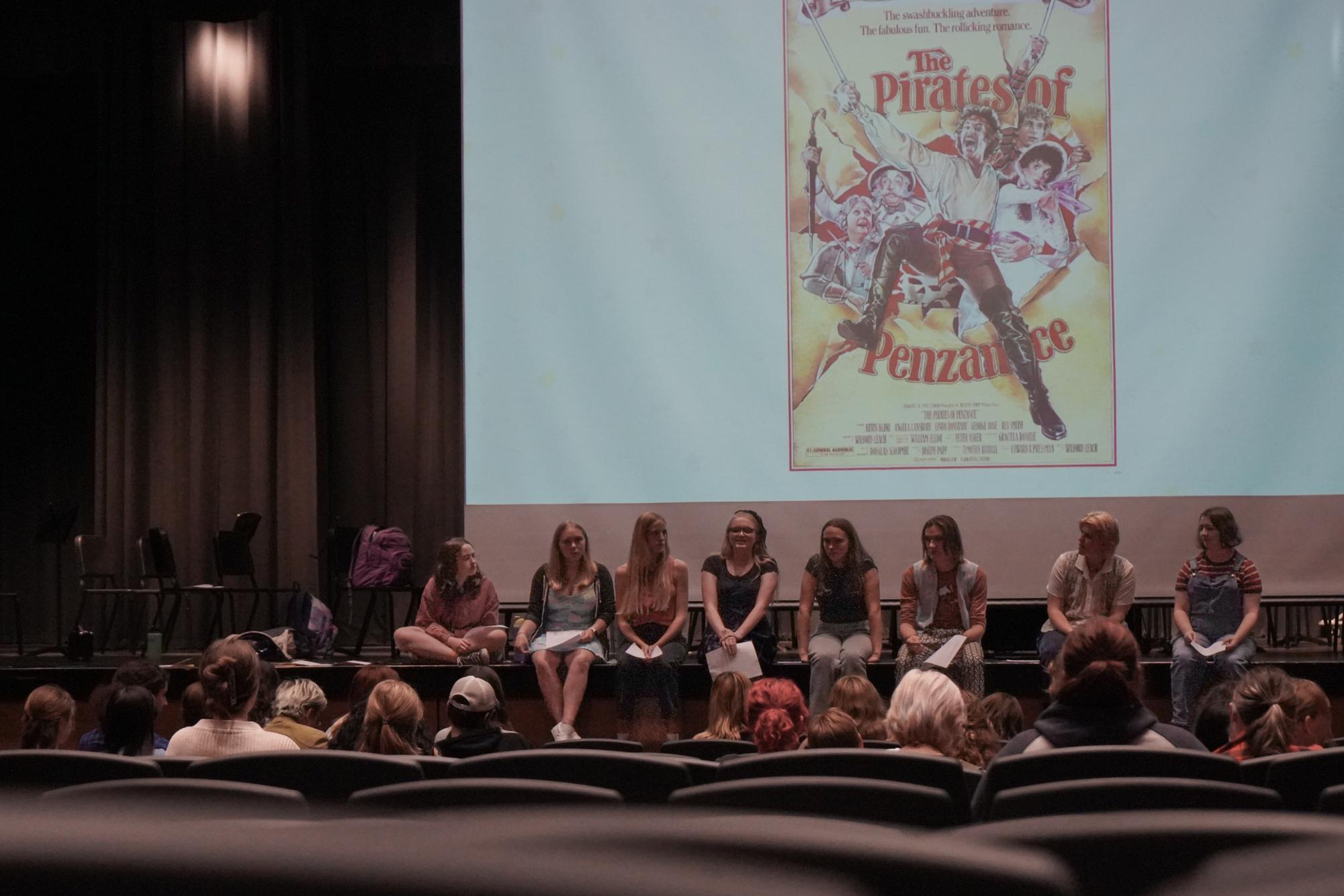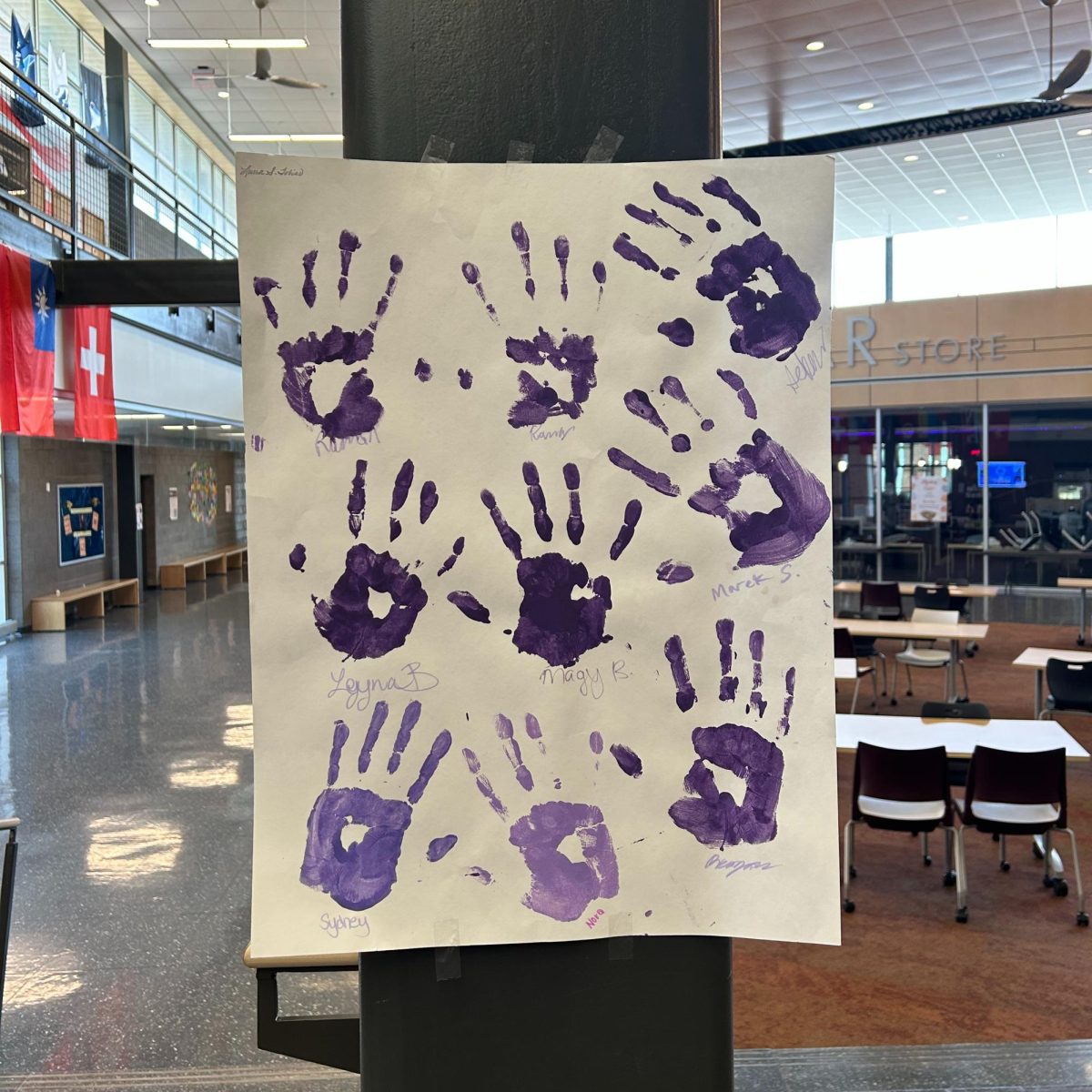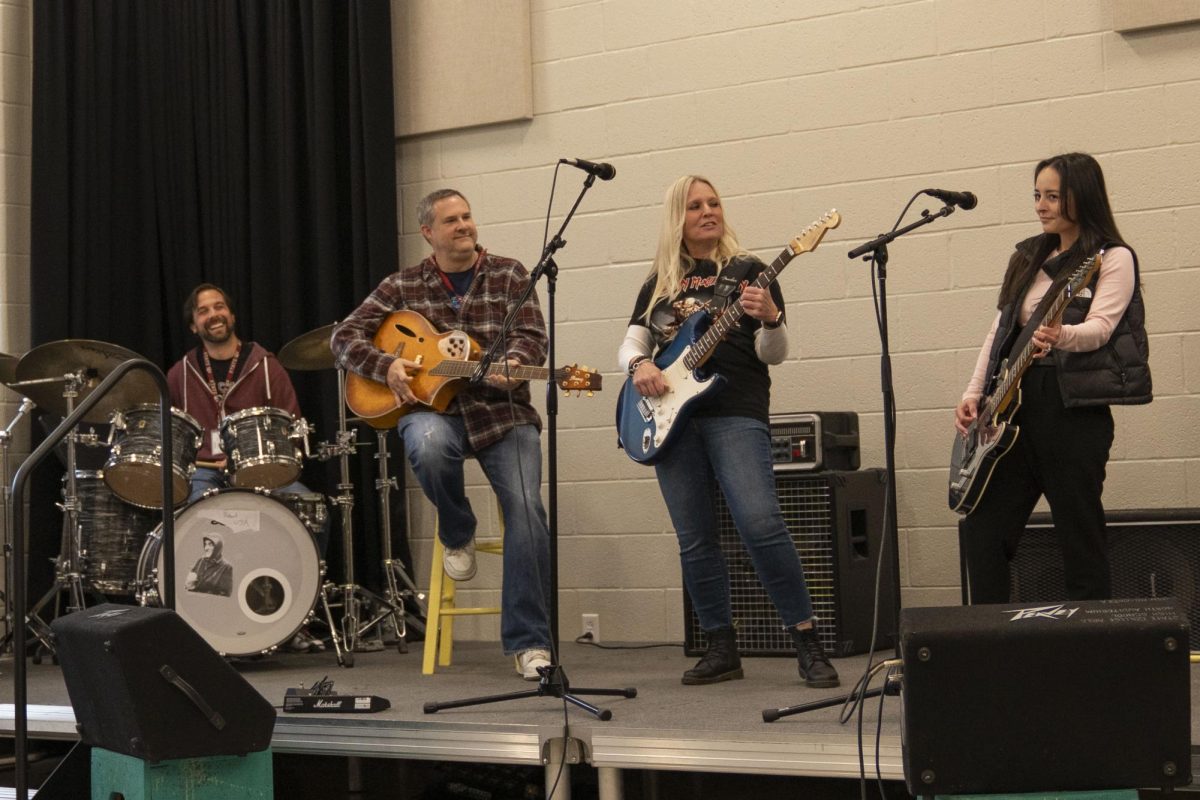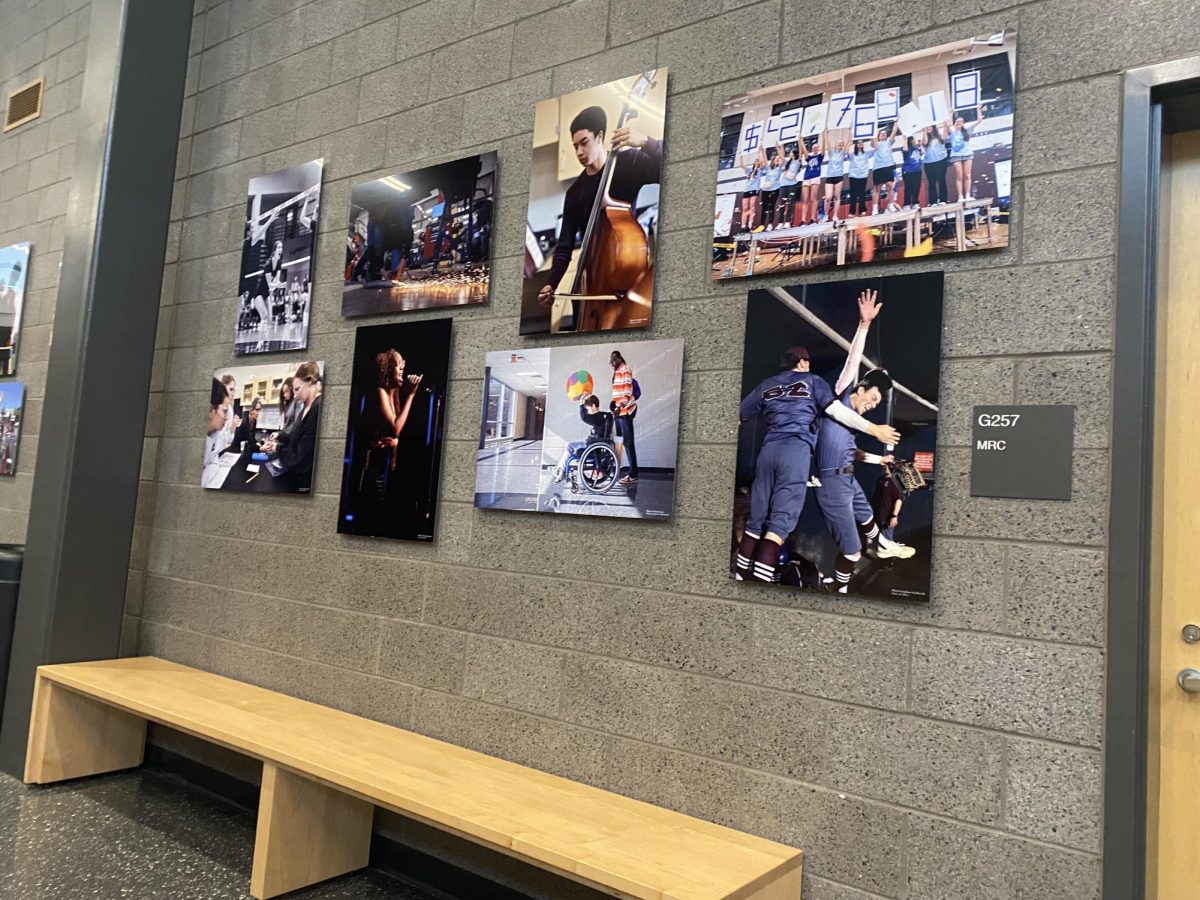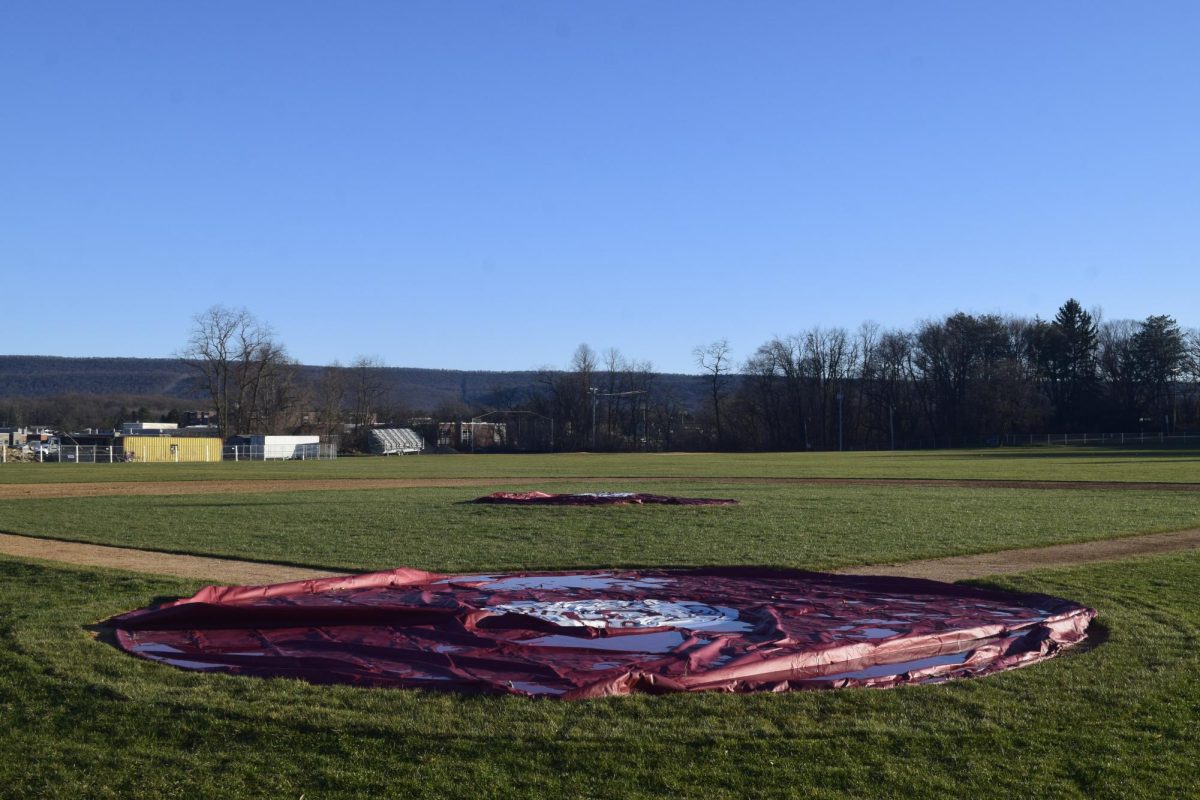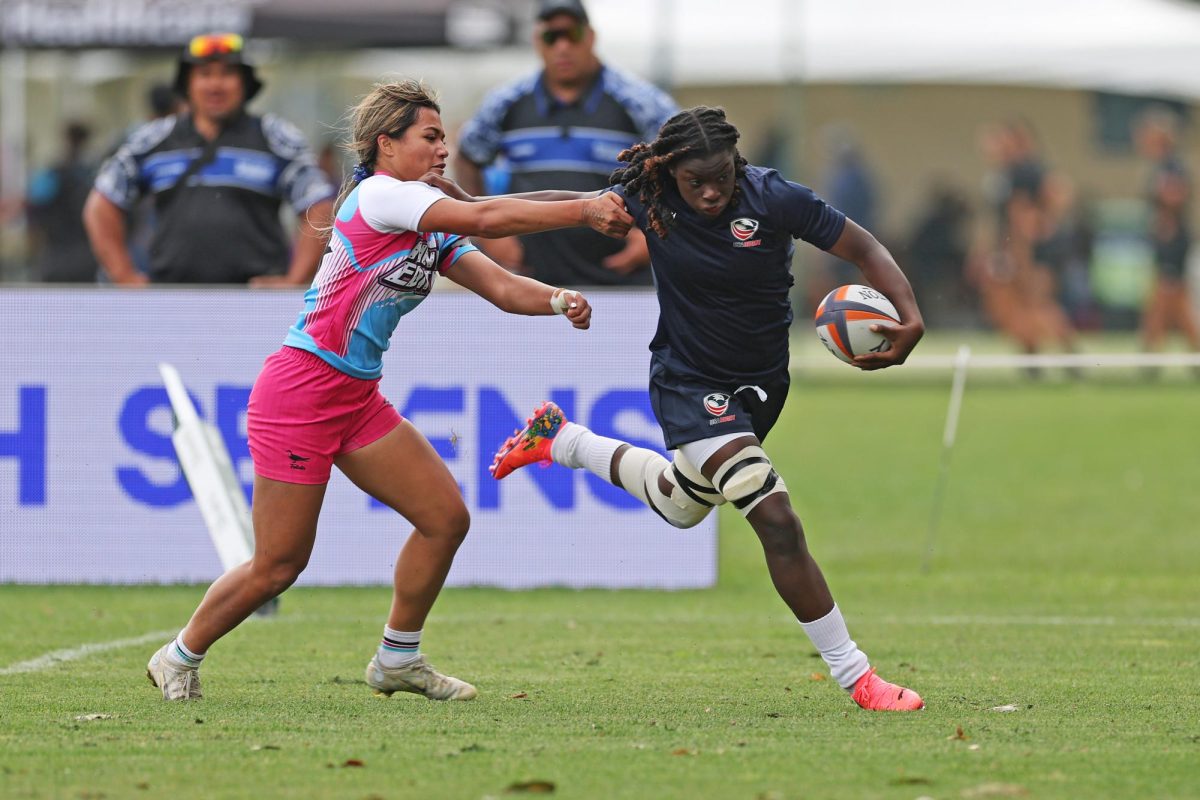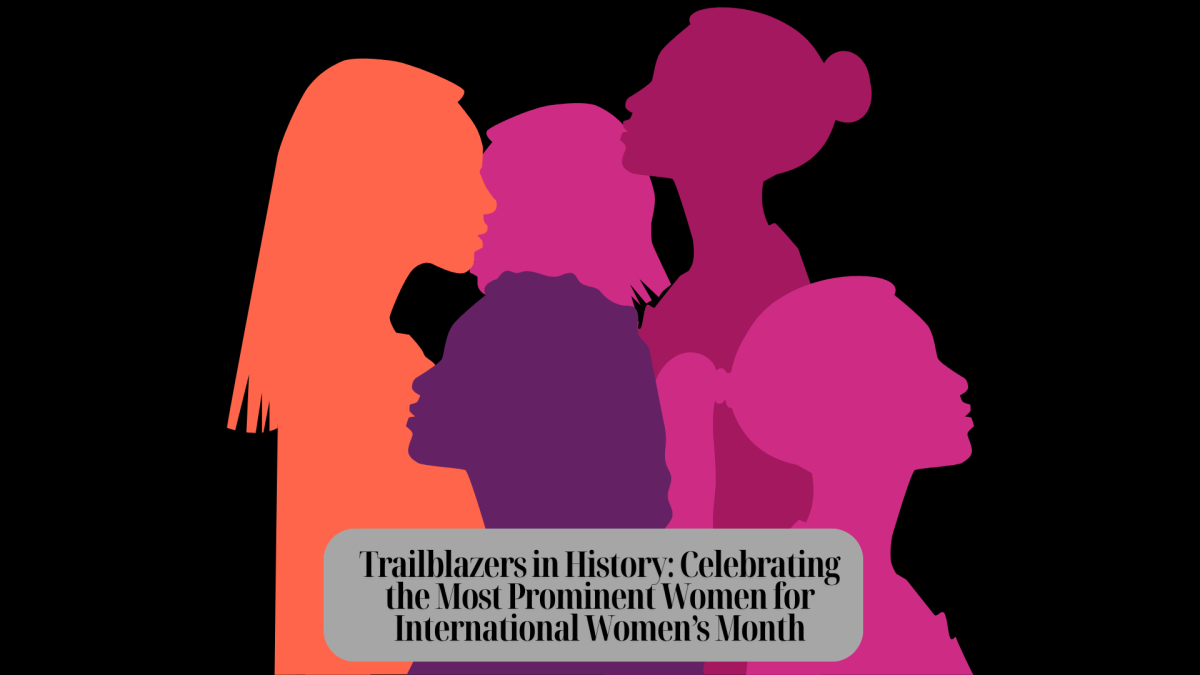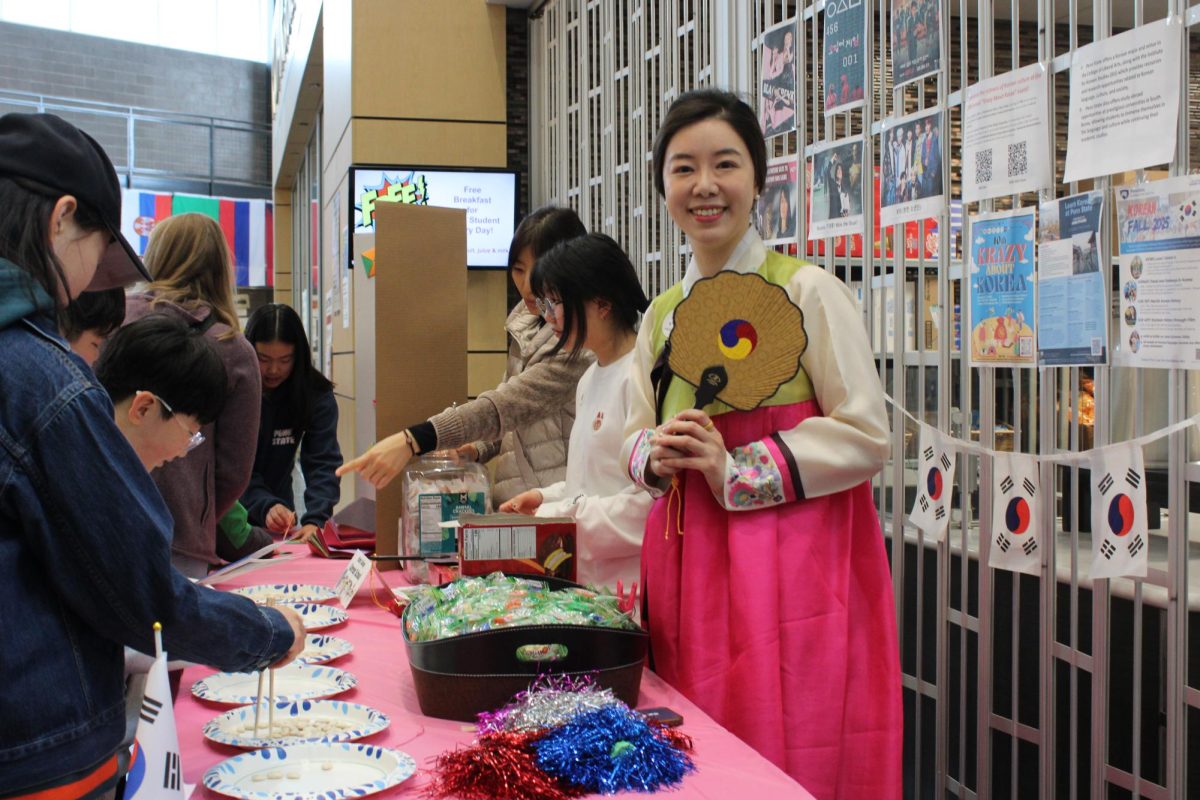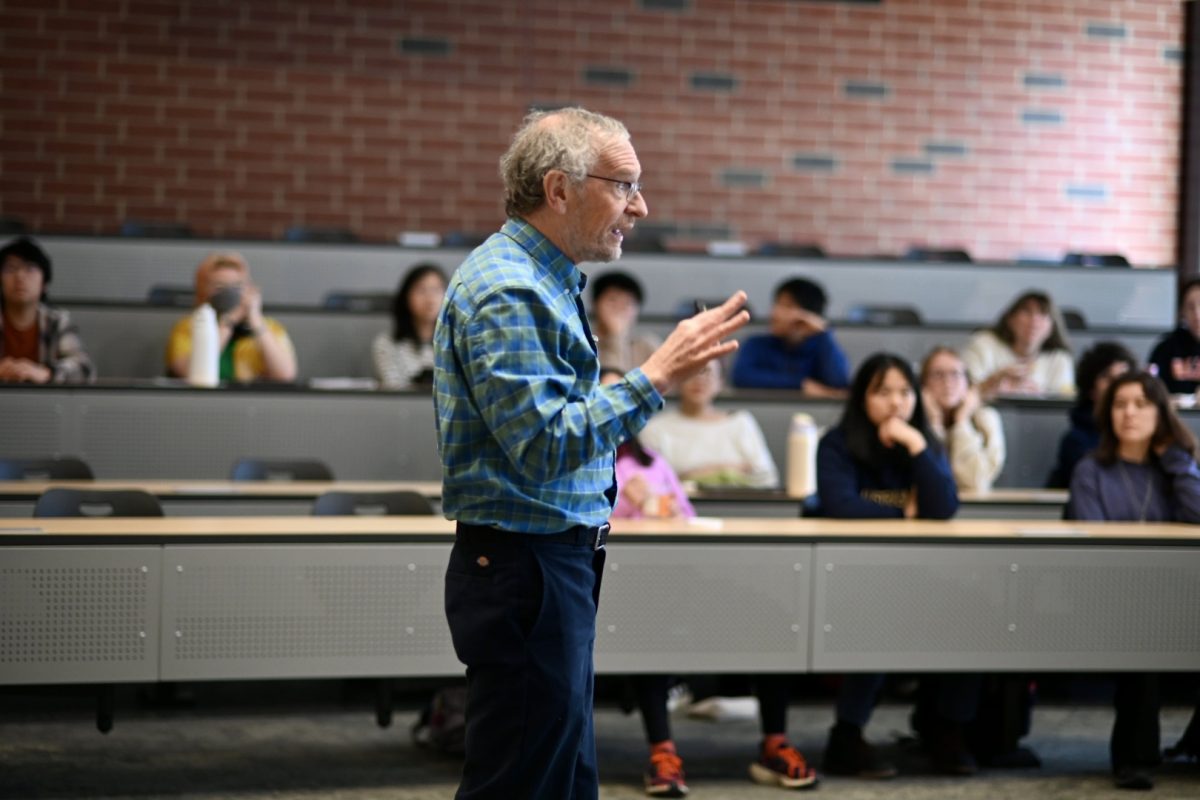Preparations for the fall show ‘Wishtree’ by State High’s Thespian Troupe 5029 has begun.
‘Wishtree’ is a show that covers aspects of discrimination, acceptance and community portrayed through a Muslim family’s struggles when moving into a new neighborhood.
“The message the show conveys is one that needs to be told, needs to be talked about, and brought under the light,” senior Julie Dehnel, head of makeup for the show, said. “So we can learn from the stories they share and their experiences, so we can understand them and show empathy.”
This play brings a lot of new experiences to State High, one of which is puppeteering the animals living in ‘Red’, the wishtree.
“The puppets are used to make it lighter and for all ages, because if it was just about all the bad things that happen to these people, it would not be as open to younger people,” Ryder Cunningham said, who is playing the role of ‘Stephen’ in the play.
The puppets become the principal character’s, Samar, sidekicks as they help her find a friend whom she desperately wishes for to feel belonging in the community.
Stephen is a crucial character in the play as he is the person the animals want Samar to befriend. His innocent and kind heart also organizes the ‘big event’ which teaches the audience a lesson on how easy it is to just be accepting.
“Hopefully for people it’s a wake-up call saying, ‘Maybe I can be more inclusive and accepting’. When they see us, I hope they think, ‘these kids understand the real world, there is something to learn from here’,” house manager, Deja Ortiz, said.
Islamophobia is a huge aspect of the show; it is the lens through which discrimination is shown. Samar, the only child of the Muslim family, lacks a friend as the neighborhood puts the label of ‘misfit’ on her family. People of the neighborhood give in to generalized stereotypes and drop hints for the family to leave. With no one to turn to, a lonely Samar befriends the animals living in Red.
This adaptation of Katherine Applegate’s novel ‘Wishtree’ to a play is the first and one could call it the ‘World Premiere’.
“This puts a lot of pressure on set construction,” Ivan Atwood, head of construction, said. “We are going in it blind. There is no other school or broadway [show] to pull inspiration from.”
Atwood indicated that the tree is going to be about 10 feet tall, with certain limbs that will move around and have certain things land on them. A crucial part of the ending is a moment of audience participation, which will also be challenging for the construction crew to manage and look after.
There are concerns regarding cultural appropriation and lack of representation in the cast. Having culturally appropriate actors play characters is critical in modern day theater, and the members were concerned how thespians would manage that.
“When I first heard about it from friends who knew what this was about, I was kind of skeptical because it seemed foreign and strange, and I did not know if we were ready for that,” Atwood stated.
On Aug. 28, Raghda Mousa visited the troupe to talk and share her experiences with Islam as a Muslim.
“One of the most reassuring things was having Raghda come in and talk to us. It was super comforting, getting that reassurance was very much needed. That is what sealed the deal of, ‘yes we did it, we can really pull this off’,” Luke Marcinkevage, who is casted as ‘Red’, said.
The members were anxious and fearful of doing something wrong, inappropriate, and portraying the message as something it is not. However, reassurance and guidance from Muslim friends helped the troupe gain more confidence.
“I didn’t want Thespians and our reputation to go down because we did something wrong. If we have people who are going to help us and guide us through we will be okay and won’t mess this up,” Ortiz said.
True inclusivity and being welcome and open to all identities is the crucial lesson to learn from this play. It also teaches everyone the hardships of life and the harsh truth of discrimination.
“I think the message is there’s always going to be differences, and unfortunately with differences often comes hate. If there’s hate there’s also love, and the more you give out, the more you get,” Marcinkevage said.
“The message is definitely all about kindness and respect. Yes, someone might be different than you but that doesn’t matter because you should always be willing to accept new people and respect people — that’s what a decent human being does,”Ortiz said.
Ortiz also expresses their story of being a person of color, explaining how being the ‘different’ one can be harsh at times, but it is so easy to just be accepting and kind.
“I am not Muslim, but I am black. Growing up in a predominantly white community there has definitely been some backlash on me […] I definitely understand Samar’s point of view because she is the different person in her community,” Ortiz said.
For the past few years, State High Thespians have been doing fictional and fantasy related shows such as ‘Alice in Concert’, ‘Seussical!’, ‘Twelfth Night’ and ‘Hello, Dolly!’. This year for the fall play, they changed it around and put together a show that contains fun elements and a meaningful lesson.
“It’s such a good thing we are doing this, so it doesn’t look like we only do willy-nilly-silly stuff […] We’re not just a bunch of high schoolers playing around in costumes. We’re actually here for a purpose,” Atwood said.
The message of this play is very important to those involved in the show. All members of the cast and crew are working together to put a show together that sends out a message they deeply care about: true inclusivity and kindness.
“Theater and storytelling has been around for so long and it has proven to be the best way to communicate and send out a message” Marcinkevage said. “It doesn’t matter how big or small of an impact you’re making, you are still making a difference. We aren’t showing them just a side of us, but also our perspective.”


